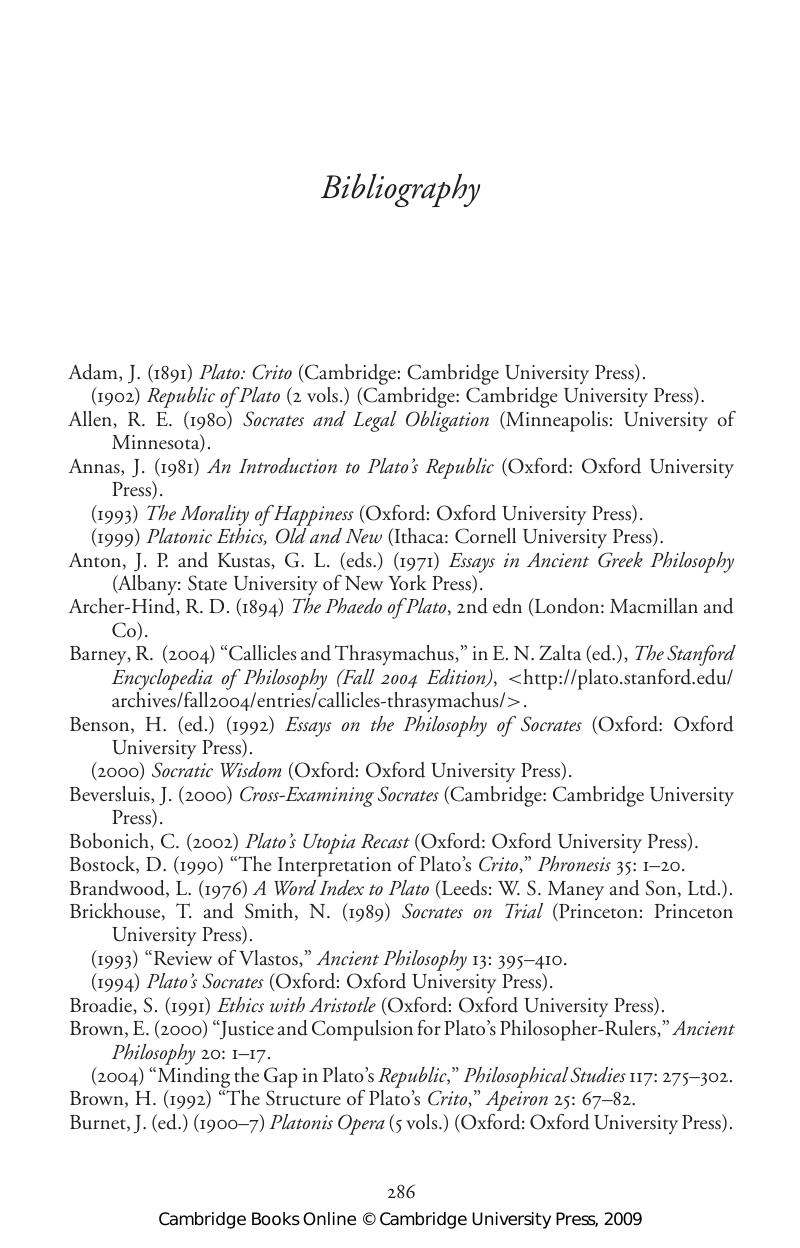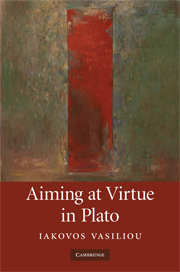Book contents
- Frontmatter
- Contents
- Acknowledgements
- Introduction
- Chapter 1 Socrates and the supremacy of virtue
- Chapter 2 Determining virtue in the here and now: Socrates in the Apology and Crito
- Chapter 3 The supremacy of virtue in the Gorgias
- Chapter 4 Trying (and failing) to determine what virtue is
- Chapter 5 Socrates and Thrasymachus: Republic 1
- Chapter 6 The benefits of injustice
- Chapter 7 Early education and non-philosophers in the Republic
- Chapter 8 Aiming at virtue and determining what it is
- Chapter 9 Epilogue
- Bibliography
- Index locorum
- General index
- References
Bibliography
Published online by Cambridge University Press: 22 September 2009
- Frontmatter
- Contents
- Acknowledgements
- Introduction
- Chapter 1 Socrates and the supremacy of virtue
- Chapter 2 Determining virtue in the here and now: Socrates in the Apology and Crito
- Chapter 3 The supremacy of virtue in the Gorgias
- Chapter 4 Trying (and failing) to determine what virtue is
- Chapter 5 Socrates and Thrasymachus: Republic 1
- Chapter 6 The benefits of injustice
- Chapter 7 Early education and non-philosophers in the Republic
- Chapter 8 Aiming at virtue and determining what it is
- Chapter 9 Epilogue
- Bibliography
- Index locorum
- General index
- References
Summary

- Type
- Chapter
- Information
- Aiming at Virtue in Plato , pp. 286 - 294Publisher: Cambridge University PressPrint publication year: 2008



